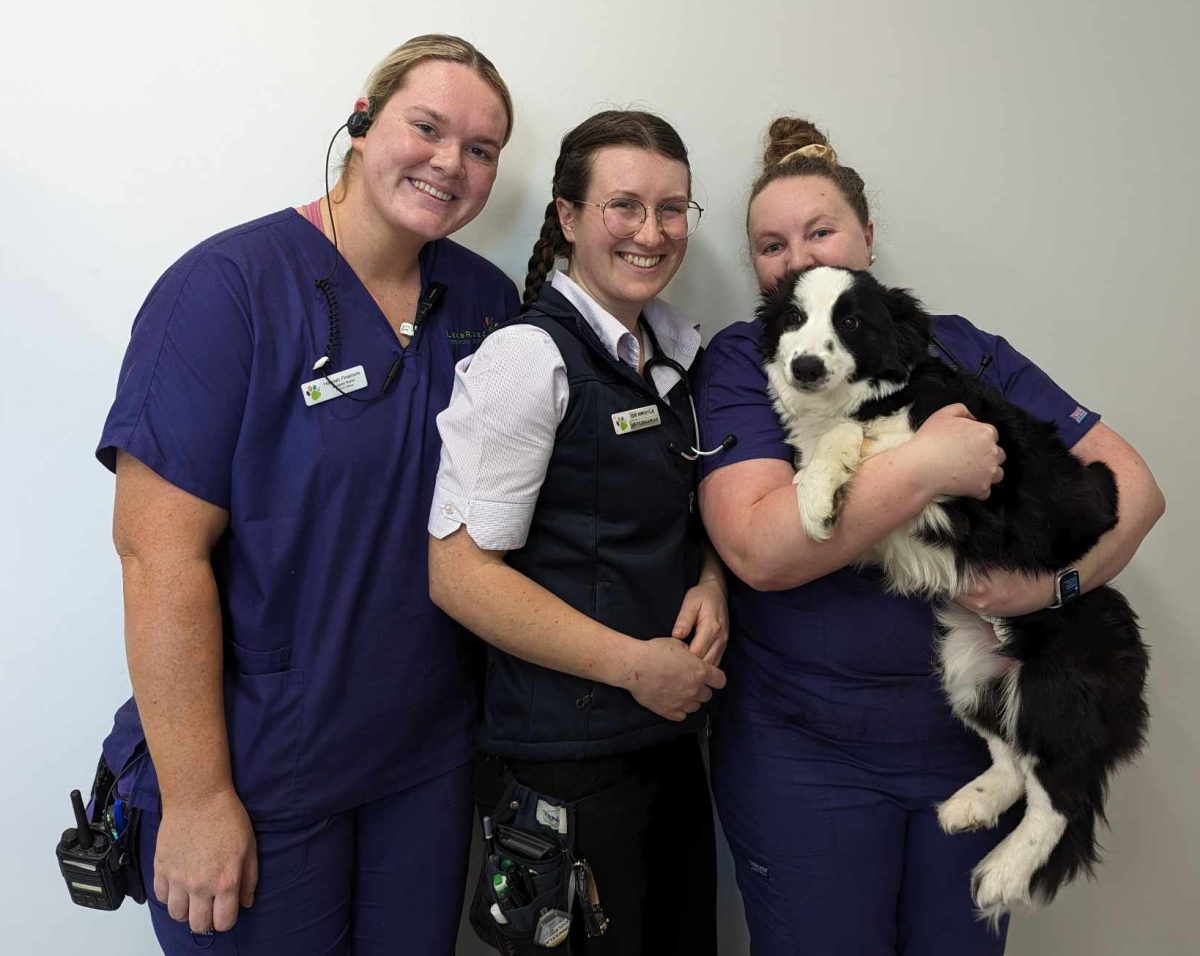
Lake Road Veterinary Hospital staff Hannah Finemore, Dr Mikayla Cole, Katherine Moore and patient Daisy are encouraging pet owners to have their animals vaccinated. Photo: Jarryd Rowley.
Leptospirosis is a deadly disease that is becoming increasingly common among Riverina pets.
It is a particularly violent bacterial infection that can cause animals to develop a fever, vomit and even end up with organ failure. The disease is transmitted via soiled water and food, wild animals and rodents and, while rare, in most extreme cases it can potentially spread to humans.
Fortunately for pet owners, there is a vaccine. However, you will need to act quickly as most veterinary clinics in NSW are reporting a shortage of vaccinations.
At Wagga’s Lake Road Veterinary Hospital, veterinarian Dr Mikayla Cole is encouraging pet owners, especially those who have pets on farms, and who are at risk of catching leptospirosis, to vaccinate sooner rather than later.
“Leptospirosis has a very variable supply so we can order it, but whether we get it from our suppliers at the international chain of supply breaks down if you only get so much at a time at the moment,” Dr Cole said.
“We do have it in stock and we strongly, strongly recommend any animals at risk – so your farm dogs, dogs that go hunting, any dog that goes on hikes or walks into the bush, dogs that eat things they shouldn’t, dogs who love puddles, or even adventurous puppies – we definitely recommend vaccination.”
While leptospirosis is commonly a seasonal disease and more common in wet seasons, it is always a risk in farming areas such as the Riverina.
“Here at Lake Road Vet Hospital, we do what we call the famous five vaccines, which are your distemper, hepatitis, parvovirus, parainfluenza and Bordetella bronchiseptica, but we also routinely add leptospirosis and coronavirus for no extra cost,” Dr Cole said.
“If your pet hasn’t been vaccinated for leptospirosis before then, it’s one shot and then four weeks later we administer another booster, which protects them for a year.
“Here in Wagga, we live in a regional area where dogs do tend to go hunting and quite a few families live on farms. We have a few cases pop up around here, so we think it is quite important that pet owners do bring their pets in and get vaccinated.”
Dr Cole said anyone who saw their pet turn away from food, vomit or develop diarrhea, or who was worried about unusual behaviour, should bring their pet to Lake Road, as it was open 24 hours a day.
“Any time of night, any time of day, give us a call and we’ll keep you in for an emergency appointment, for any reason, big or small. We will do our best to support you and your pet,” she said.







